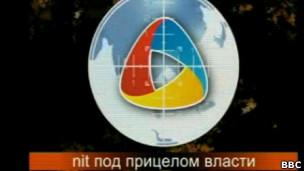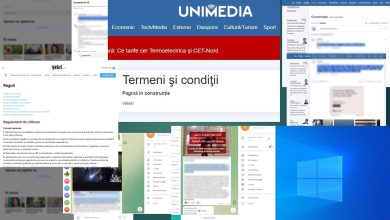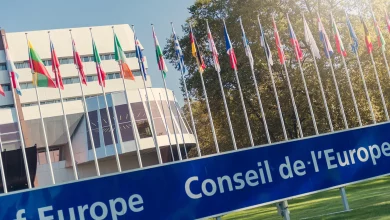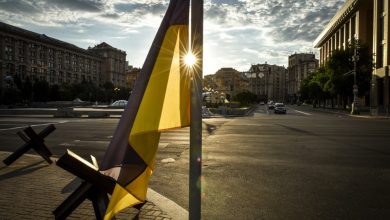NIT lost the case against Moldova at the ECtHR. The Court found no violation of the right to free expression

The European Court of Human Rights (ECtHR) did not find any violation of the right to freedom of expression or of the right to the protection of property in the case of the former television station NIT (Noile Idei Televizate S.R.L.) against the Republic of Moldova. The judgment was adopted on April 5.
NIT representatives complained to the ECtHR in 2012, after the regulator withdrew the station’s broadcasting license, arguing that it violated their right to freedom of expression and property. The company also asked the Court to examine whether national law could impose an obligation of neutrality and impartiality on the newscasts of a private television broadcasting on national frequencies.
According to the ECtHR judgment, 14 judges voted that there had been no violation of freedom of expression in this case, while three judges disagreed. At the same time, 15 judges supported the idea that there had been no violation of the right to property, versus two votes against.
The Court acknowledged that in such a sensitive sector as the audiovisual media the State had to put in place an appropriate legislative and administrative framework to guarantee true effective pluralism. “Further, when it comes to audiovisual broadcasting, States are under a duty to ensure, first, that the public are given access to impartial and accurate information and a range of opinions and comments, reflecting, inter alia, the diversity of political outlook within the country and, secondly, that journalists and other professionals working in the audiovisual media are not prevented from imparting such information and comment,” the document says.
The Court reminded that the national policy on pluralism, promoted by the national authorities and regulated by the Broadcasting Code of Moldova of 2006, received positive assessment from the experts of the Council of Europe. “While the internal pluralism policy chosen by the national authorities might be seen as rather strict, the present case relates to a period before Moldova transitioned to terrestrial digital television, when the number of national frequencies was very limited and when the authorities were under a strong positive obligation to put in place broadcasting legislation ensuring the transmission of accurate and balanced news and information reflecting the full range of political opinions,” the judgment says.
Thus, the Court was convinced that the reasons behind the decision to restrict NIT’s freedom of expression were sufficient and relevant and that the national authorities “balanced the need to protect pluralism and the rights of others, on the one hand, and the need to protect the right to freedom of expression, on the other hand.”
Minister of Justice Sergiu Litvinenco welcomed the judgment. “The ECtHR judgment in the case of NIT v. Moldova shows us very well where the ‘border’ between propaganda and journalism is. We knew they were different things, but starting today it has become even clearer. (…) It is a precedent that must give pause for thought to the outlets that keep making propaganda and consciously promoting all kinds of fakes,” Sergiu Litvinenco wrote on his Facebook page.
NIT’s ROAD TO THE ECtHR
NIT started working in 1997, and in 2004 it received a license for a national frequency. Since 2009, the station had been the main voice of the only opposition party (the Party of Communists).
Between 2009 and 2011 it was sanctioned several times for violating the legislation concerning pluralism, namely the obligations of neutrality and impartiality, in its newscasts. In particular, the national audiovisual authority accused the TV station of lacking pluralism, having politically biased newscasts, favoring the opposition political party and broadcasting distorted news.
In 2012, after the station once again failed to comply with the law on pluralism, as provided for in Article 7 of the Broadcasting Code in force at that time, despite the many milder sanctions imposed on it, its operating license was withdrawn.
The company challenged the decision in national courts, but its action was dismissed as unfounded in 2013. The Court of Appeal found, in particular, that the audiovisual authority had no choice but to impose the harshest sanction of revoking the license of the television station, given that it had refused to comply with national legislation on pluralism.
The application was submitted to the European Court of Human Rights on May 11, 2012.




